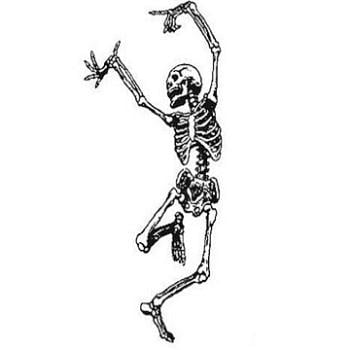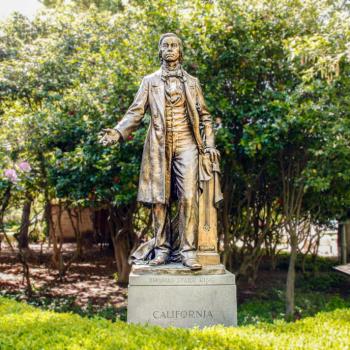Sometime in March of 1845, Henry David Thoreau’s friend the poet Ellery Channing famously advised him, “Go out upon that, build yourself a hut, & there begin the grand process of devouring yourself alive. I see no other alternative, no other hope for you.”
Few have given anyone better advice. And, in the rarest of confluences, Thoreau saw the wisdom in his friend’s suggestion, and acted on it, building himself that hut.
And it was on this day, the 4th of July, in 1845 that Thoreau moved into his hut beginning his two year, two month, & two day sojourn living at the edge of Walden Pond. His experiment in radical simplicity would eventually coalesce into that amazing, and these days probably more often celebrated than read, masterwork of an American spiritual quest, Walden: Or, Life in the Woods.
During my time living in New England, no year went by without my making a small personal pilgrimage to Walden’s pond, circumambulating it and stopping to add a small pebble to the cairn near the site where his shack stood. I consider it one of America’s holy sites. And those visits among my most cherished memories of my New England years.
The message of Walden is hard to boil down to a single word or phrase. Although Thoreau himself summarized the spirit of that book, and what it invites us into when he wrote:
“I went to the woods because I wished to live deliberately, to front only the essential facts of life, and see if I could not learn what it had to teach, and not, when I came to die, discover that I had not lived. I did not wish to live what was not life, living is so dear; nor did I wish to practice resignation, unless it was quite necessary. I wanted to live deep and suck out all the marrow of life, to live so sturdily and Spartan-like as to put to rout all that was not life, to cut a broad swath and shave close, to drive life into a corner, and reduce it to its lowest terms, and, if it proved to be mean, why then to get the whole and genuine meanness of it, and publish its meanness to the world; or if it were sublime, to know it by experience, and be able to give a true account of it in my next excursion.”
In many ways he succeeded.
While there are some who make light of the fact during his sojourn he was never far from home and frequently had dinner at his mother’s house. And he was by no means a perfectly realized being, shortcomings and prejudices are revealed in those pages. Still, still there is in this book that those two years, two months and two days generated that is compelling and powerful. It reveals an American Taoism, if you will.
I have to add into any moment reflecting on Thoreau and Walden, the pamphlet that he wrote during that time on the pond. In some ways I feel it perfectly fits as an addendum to the book.
It is sad the book seems a bit more honored than read these days. I believe most all of us could profit from giving it a read. Perhaps even a re-read.
And, well, there is something of a handbook in there. Or, at the very least, that invitation.
I remain grateful.















